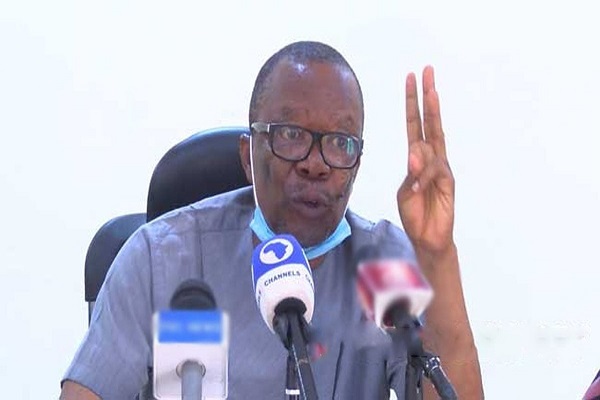The Academic Staff Union of Universities (ASUU) has raised concerns over the high amount expended by universities in running their activities and operations, especially electricity bills, which it said may lead many institutions to shut down academic operations.
ASUU President Prof. Emmanuel Osodeke raised the alarm during the 2024 ASUU State of the Nation Conference in Abuja on Thursday, October 3, 2024.
Osodeke lamented that the Internally Generated Revenue (IGR) from public universities was too meagre compared to the huge cost expended on power supply, security, accommodation, and other administrative costs in the operations of universities.
According to him, public universities were entitled to N15 million monthly from the government as overhead, but have to contend with electricity bills to the tune of N300 million and above.
While criticising the proliferation of universities in Nigeria, Osodeke, who warned that universities were merely running on skeletal manpower as most of the lecturing staff were out of the country searching for greener pastures, said farming has become more lucrative for academicians.
The ASUU President said: “We are so challenged. But let me give you a quick example, University of Lagos, University of Ibadan, Amadu Bello University, and University Nigeria, Nsuka, what they get from the government account for overhead running of the university in a month is N15 million. Meanwhile, the University of Lagos needs about N200 million naira to pay electricity bill. It is this IGR that you talk about that is used to pay for electricity
“One of the universities today is closing down because they have been given electricity bill of N300 million.
“What government gives you to run the system is N15 million, and you get a bill for electricity alone of N300 million. Where is that money coming from? You have to run the laboratories. You have to run the diesel. You have to run the fuel for vehicles.
ASUU official escapes from kidnappers in Edo
“That is where the IGR is going into today. Not being able to run the system, to buy books in the library, to run your library, to earn those things. They are all part of their so-called IGR, and that is what they talk about it.
“But you know what? A government that will give just N15 million for UNILAG to run, will in turn, give one Senator N21 million a month. The government gives a system N15 million, but an individual gets N21 million. That’s where our priority is.
“For whatever reason, they have refused to fund the university systems as it was in the earlier part of our history.
“From the way we are going, if nothing is done, many universities will close up because they cannot afford the so-called Band A and Band B.”
Speaking at the event, the Speaker of the House of Representatives, Tajudeen Abbas, appealed to ASUU to shelve plans for another strike once the 14-day ultimatum issued to the government elapses.
Abbas urged the union to explore alternative means of resolving industrial disputes within the university system, saying: “While I understand the painful decisions involved before ASUU calls for a strike, we must strive to maintain industrial harmony and stability in universities through an alternative dispute resolution system.
“I urge ASUU to consider other options for resolving disputes after the 14-day ultimatum expires. I promise to use the resources of the House of Representatives to facilitate the necessary interventions to resolve outstanding issues.
Eko DisCo disconnects UNILAG over unpaid N472m bill
“In recent years, we have witnessed a series of industrial disputes that have disrupted academic calendars and hindered the pursuit of knowledge. The impact of strikes on students’ education cannot be overstated, as it affects their future and undermines the integrity of our educational system.
“Through relentless campaigns for improved funding for universities, better working conditions for academic staff, and enhanced welfare for students, ASUU has not only championed educators’ causes but has also laid the foundation for sustainable national development.”
- Tinubu makes U-turn, confers GCON on Reps Speaker Abbas - October 4, 2024
- FULL LIST: FG removes VAT on electric vehicles, gas generators, 61 others - October 4, 2024
- Pupil dies, others injured in Delta school building collapse - October 4, 2024










